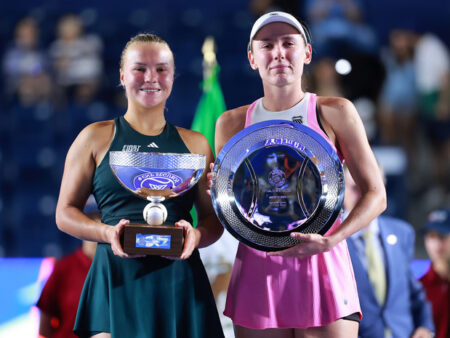In the intricate world of professional boxing, securing a title shot can often be as challenging as the fight itself. The light-heavyweight division is currently a prime example, witnessing a fascinating interplay of mandates, money, and raw ambition. At its heart lies the formidable David Benavidez, the mandatory challenger, and the undisputed king, Dmitry Bivol, with a new, powerful player attempting to shift the very landscape of the sport.
The WBC`s Mandate and a New Mogul`s Vision
Following his masterful, unifying victory over Artur Beterbiev, Dmitry Bivol now sits atop the 175-pound division, holding all the major belts. Logically, his next challenge should come from the mandatory contender designated by one of the sport’s most prominent sanctioning bodies: the WBC. That challenger is the undefeated two-time super-middleweight titlist, David Benavidez, a man who has long chased significant matchups and proven his mettle with a perfect 30-0 record, including 24 knockouts.
The WBC, through its president Mauricio Sulaiman, has given both teams until April 8th to negotiate the terms for this highly anticipated clash. However, the traditional path of boxing is facing a significant detour. Enter Turki Alalshikh, the influential Saudi boxing power broker, whose recent investments have reshaped the sport`s financial dynamics. Alalshikh has expressed a keen interest in a trilogy fight between Bivol and Beterbiev, seemingly unfazed by Benavidez`s mandatory position. This move suggests a potential disregard for the established hierarchy, raising questions about whether the WBC`s mandate can withstand the allure of considerable financial backing.
Lewkowicz`s Stance: Respect, But No Ring-Kissing
Sampson Lewkowicz, Benavidez’s veteran promoter, finds himself navigating this complex landscape with a clear objective: secure a world light-heavyweight title shot for “The Monster Bandera Roja.” While he acknowledges the financial muscle Alalshikh brings, Lewkowicz is vocal about his principles and the sanctity of a mandatory challenge.
“Trust me, I’m well prepared with PBC [for a WBC purse bid on April 8],” Lewkowicz stated. “Over here in America, we can do a promotion with [Alalshikh]. We can make that together, but I will not kiss his ring.”
Lewkowicz`s comments carry a dual message. He`s open to collaboration, even with the new money, but not at the expense of traditional boxing values or his fighter`s earned right. His description of Alalshikh as a “rookie in boxing” might seem audacious, given the Saudi official`s undeniable impact, yet it underscores a deeper point: experience and understanding of the sport`s intricate ecosystem, particularly its American roots, cannot be entirely supplanted by sheer financial power. It`s a subtle jab, delivered with the precision of a seasoned promoter, asserting that while money talks, the heart and history of boxing still beat strongest in its traditional strongholds.
The Battleground: Las Vegas vs. Saudi Arabia
The location of a potential Bivol-Benavidez bout is another point of contention. While Saudi Arabia has emerged as a major player, hosting several high-profile fights, Lewkowicz firmly believes that America, specifically Las Vegas, offers the most logical and lucrative setting for such a clash. From a business perspective, he argues, a fight of this magnitude resonates deeply with the long-standing American boxing audience and infrastructure.
“Boxing is a family, and what is best for the family? It’s America, not Saudi.”
This statement isn`t merely about geography; it`s about the sport`s soul. Lewkowicz subtly implies that while Saudi Arabia offers spectacle and significant purses, America represents the continuous, generational support that has sustained boxing for decades. It`s a plea for balance, suggesting that the sport`s future should ideally blend new investment with its deeply established fan bases and promotional structures.
What Lies Ahead: A High-Stakes Negotiation
As the April 8th deadline looms, the boxing world watches keenly. Will Benavidez finally get his long-awaited shot at undisputed glory against Dmitry Bivol? Or will the immense influence of Turki Alalshikh divert Bivol towards a third encounter with Artur Beterbiev, potentially sidelining Benavidez despite his mandatory status?
The situation highlights a fascinating crossroads for boxing. It pits traditional sanctioning body mandates against the burgeoning power of new financial stakeholders. For David Benavidez, a fighter known for his relentless pursuit of greatness, this promotional chess match is perhaps his toughest opponent yet – a battle of wills, strategy, and power that will ultimately determine the future landscape of the light-heavyweight division.










